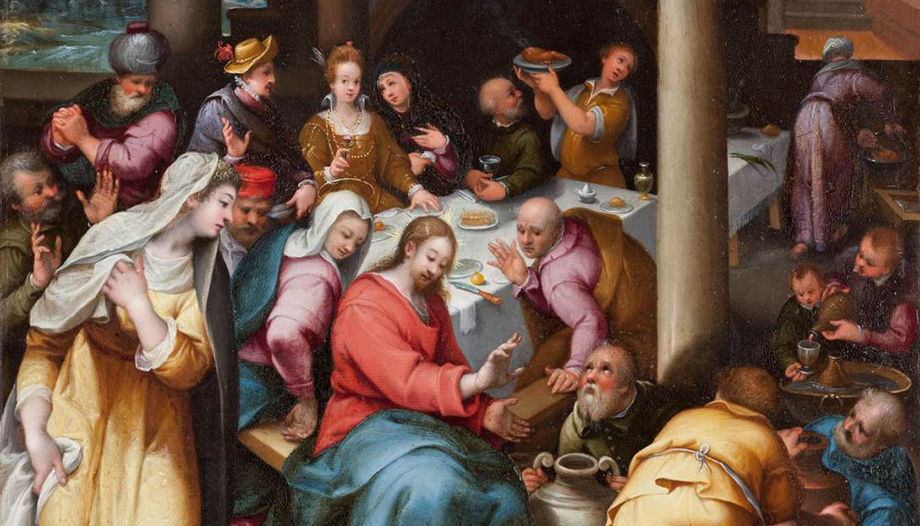The third Epiphany of Jesus takes place at Cana. In the Mass the Gospel begins with the words: "at that time", but in the original the episode is introduced with: "on the third day". In the theophany at Sinai, God appeared to Moses on the third day amid thunder and lightning, in a cloud and with a very loud sound of a horn.
The style has changed: here Jesus participates in a wedding feast: joy, good food, singing and dancing. Three days lasted his search and three days will last "his hour", in Jerusalem. The wedding is a symbol of Israel's relationship with God. With Isaiah God declares his love for Jerusalem: "...".You will be called My joy and your land Married, for the Lord will find His delight in you and your land will have a bridegroom ... as the husband rejoices over the bride, so your God will rejoice over you.".
The true husband at Cana is Jesus, called seven times by his proper name and three times by personal pronouns, and the true bride is Mary, called twice by her proper name and three times by personal pronouns. the mother of Jesus, then woman and again mother. It is Mary who introduces Jesus and his disciples, us, to the feast. She takes notice. She leaves the role of a simple guest. She goes further: she is not the bridegroom, nor the master of the table, no one has asked her for anything, but "When the wine ran out, the mother of Jesus said to him, "They have no wine"".
He has set his eyes on the Son and with his gaze asks him to give a sign of himself to these spouses and to the world. Jesus is pensive, Mary is reminded of his state of mind by the words of the angel. Perhaps he did not want to begin yet what would have brought immense suffering to his Mother, because it would have led him to die for love, for all.
That is why he says to her: "Woman, what's the matter with you and me? My time has not yet come.". The hour decided by the Father. Saying this, he connects the wedding at Cana with his cross and his resurrection. Mary understands and, with the language of her eyes, which both of them have always known well, says to him: my love, do not be afraid for me, I have already said my yes.
And it's forever, you know. With a look he says to him, "You can now anticipate your hour." Paul to the Corinthians: "To each is given a particular manifestation of the Spirit for the common good."At Cana, each one does his part, the servants fulfill fully what Mary commands and what Jesus said: "...".to the top"fill the stone amphorae with water for the purification of the ancient law.
They become an anticipation of the chalices filled with the wine of the new covenant. The master of the table tastes and testifies that this wine is the best. The bridegroom, the first unwitting recipient of the gospel of God, welcomes with his astonished silence the unexpected that happened in his life. The disciples, and we with them, believe in Jesus and follow him.
Homily on the readings of Sunday II
The priest Luis Herrera Campo offers its nanomiliaa small one-minute reflection for these readings.









